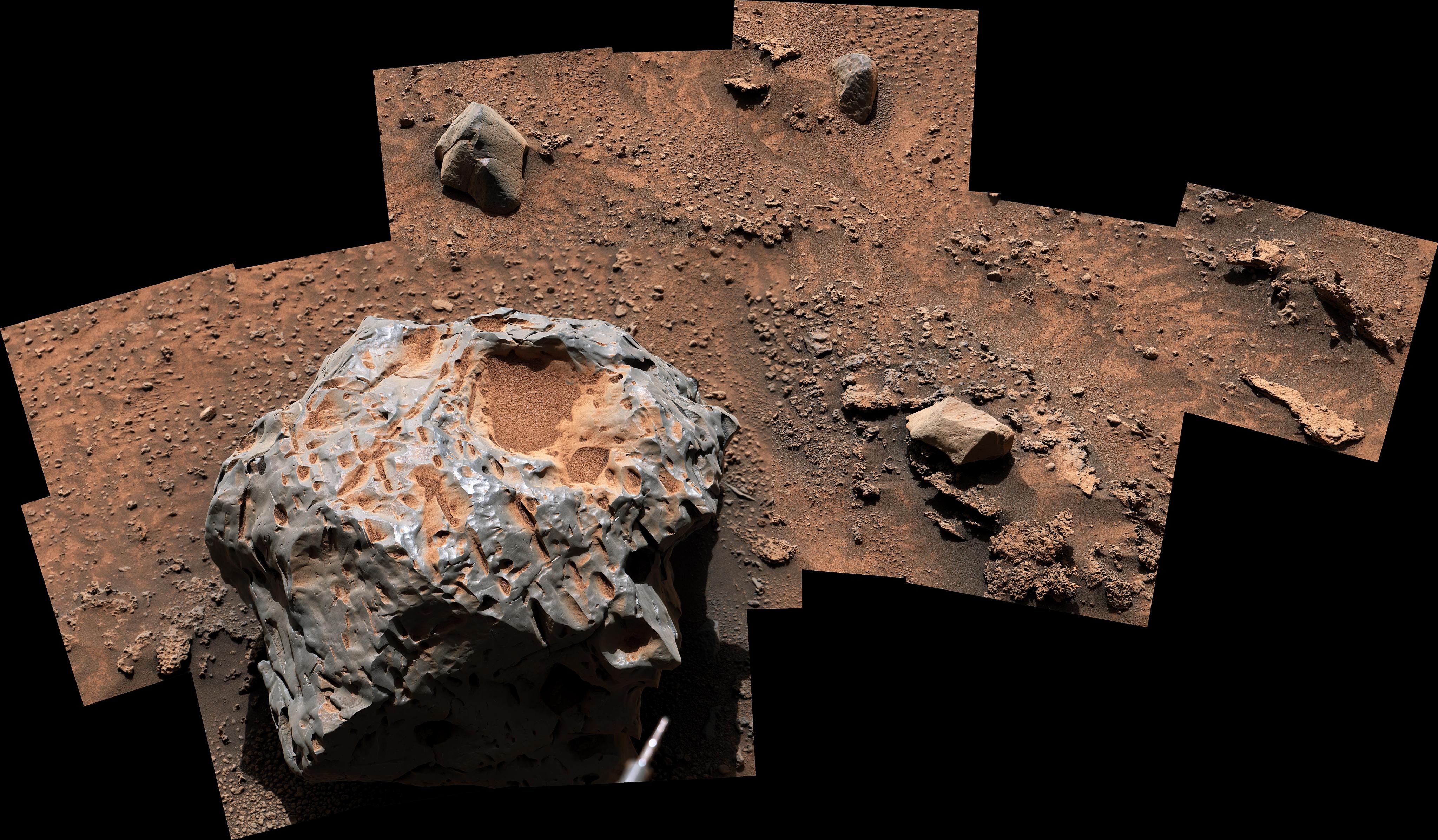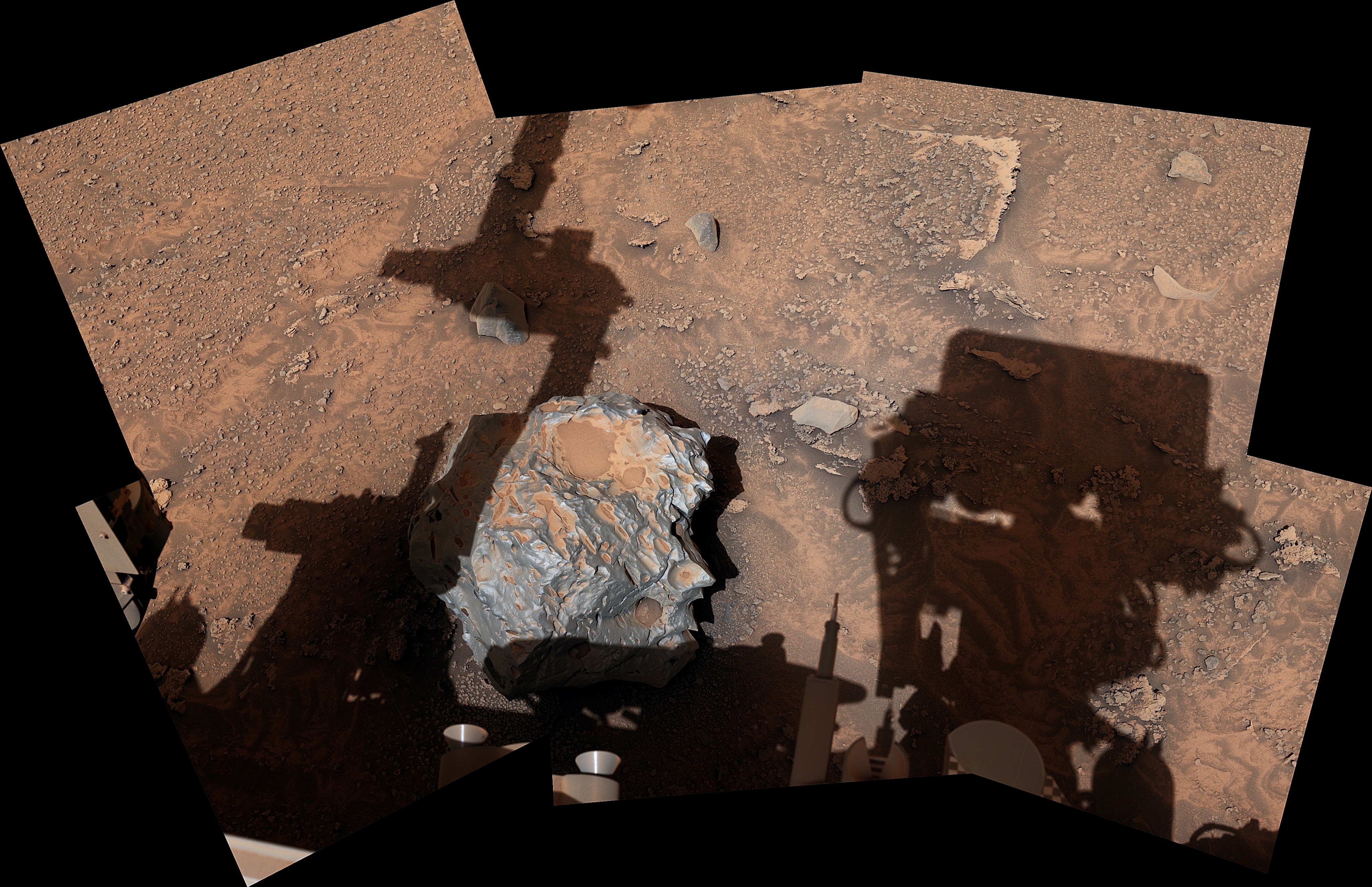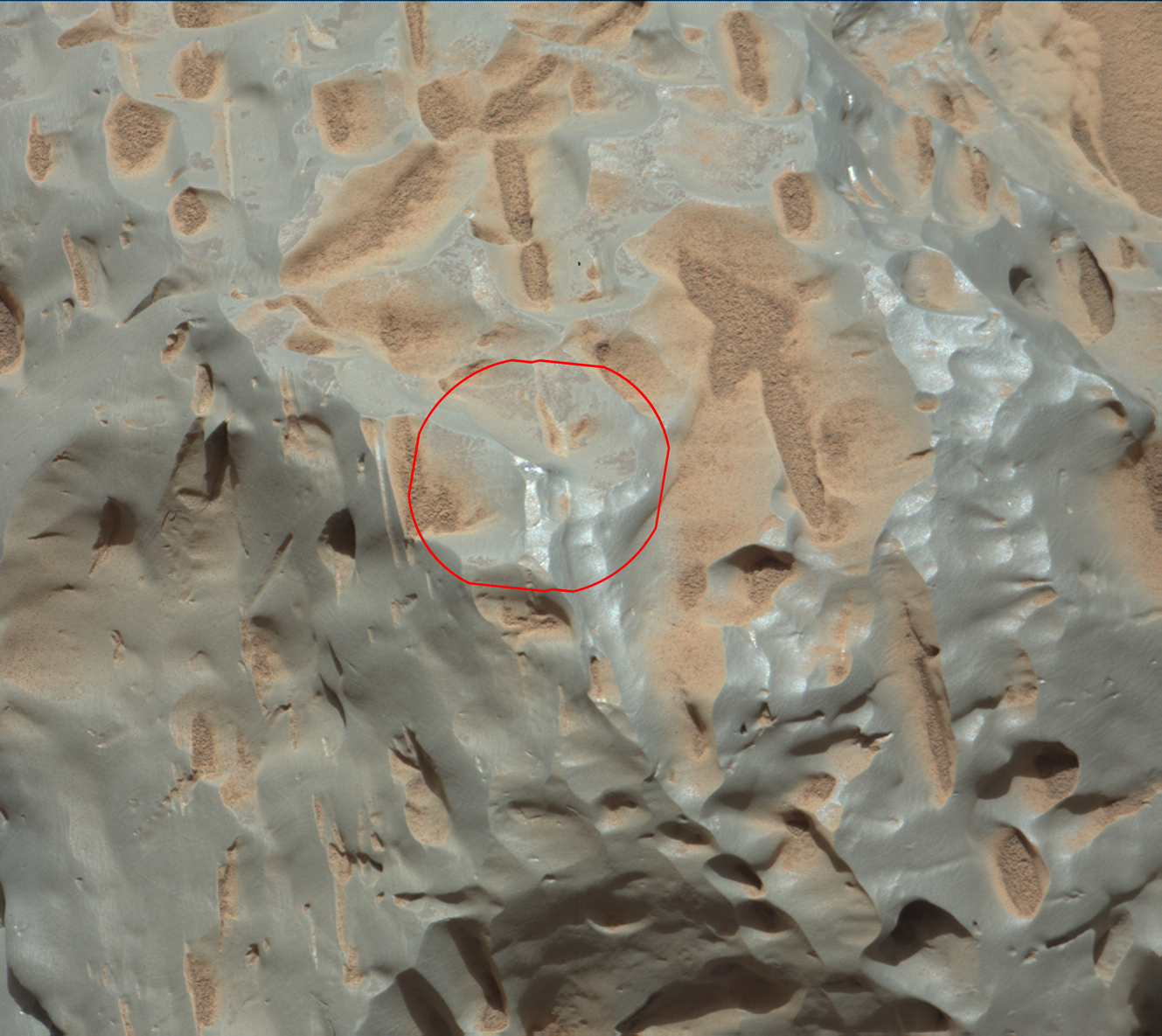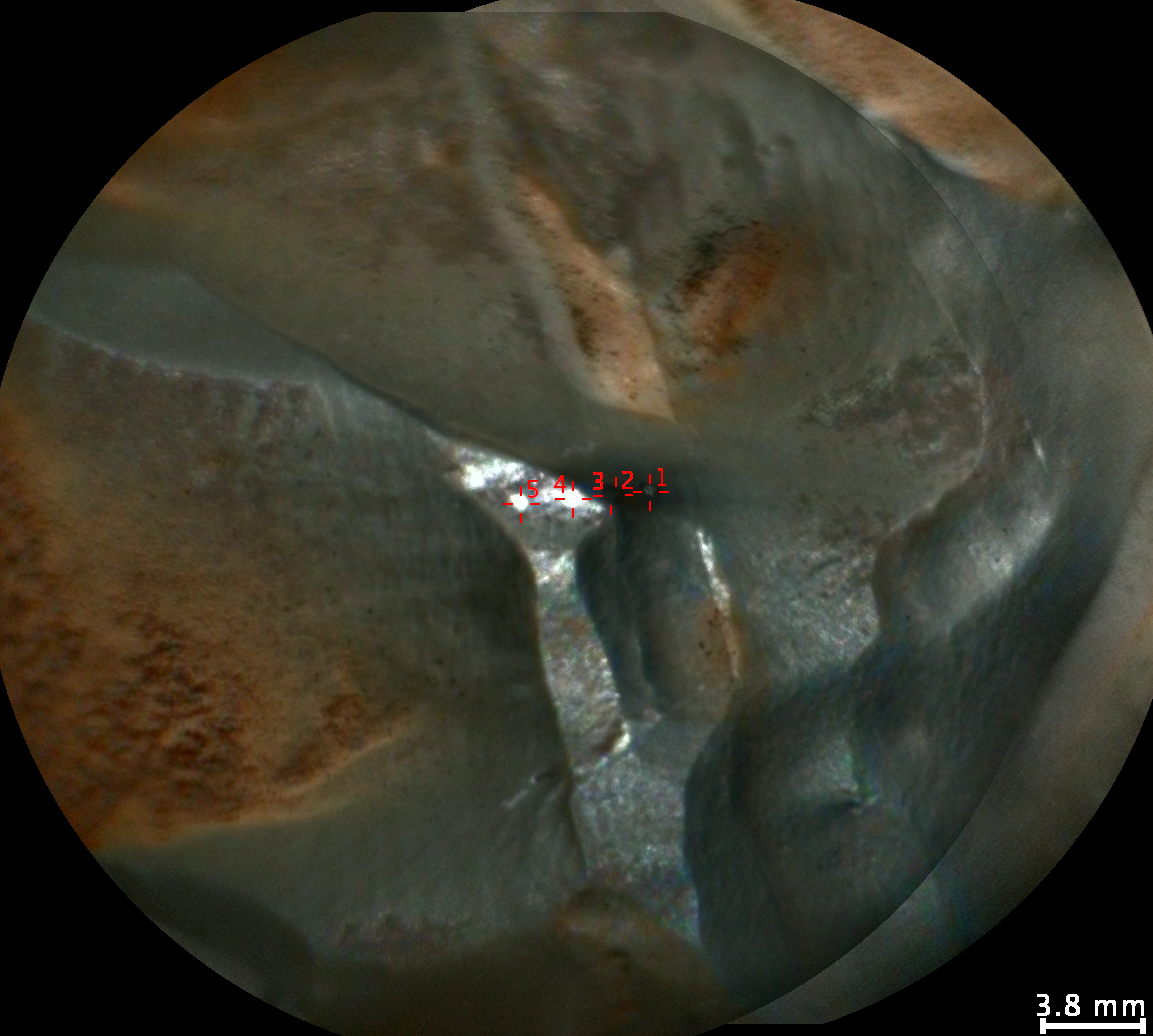Curiosity Finds a Meteorite, Cacao
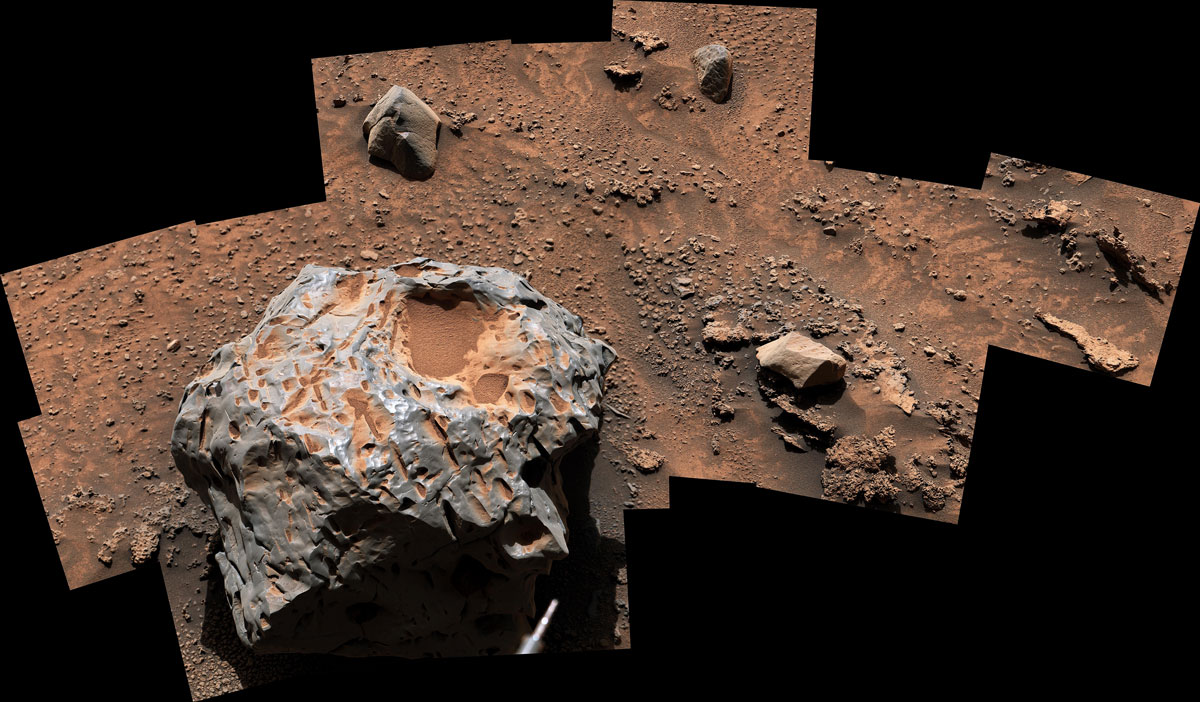
| Credit | NASA/JPL-Caltech/MSSS |
|---|---|
| Language |
|
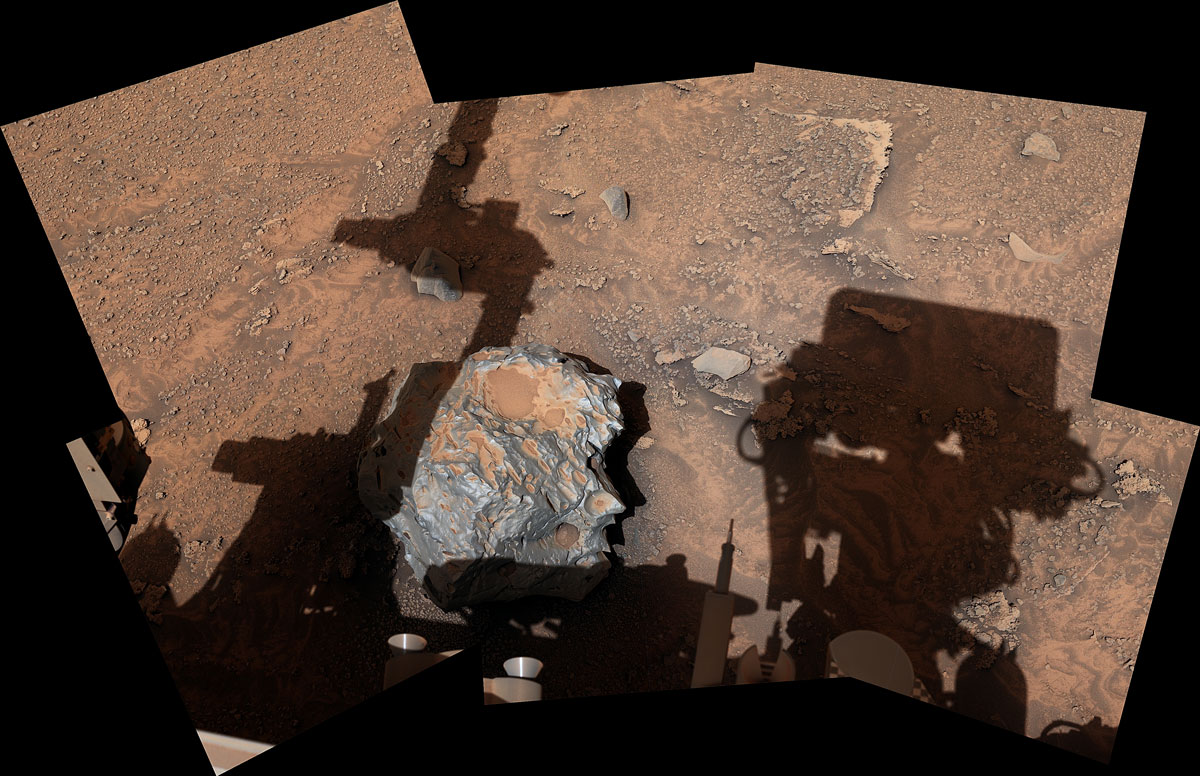
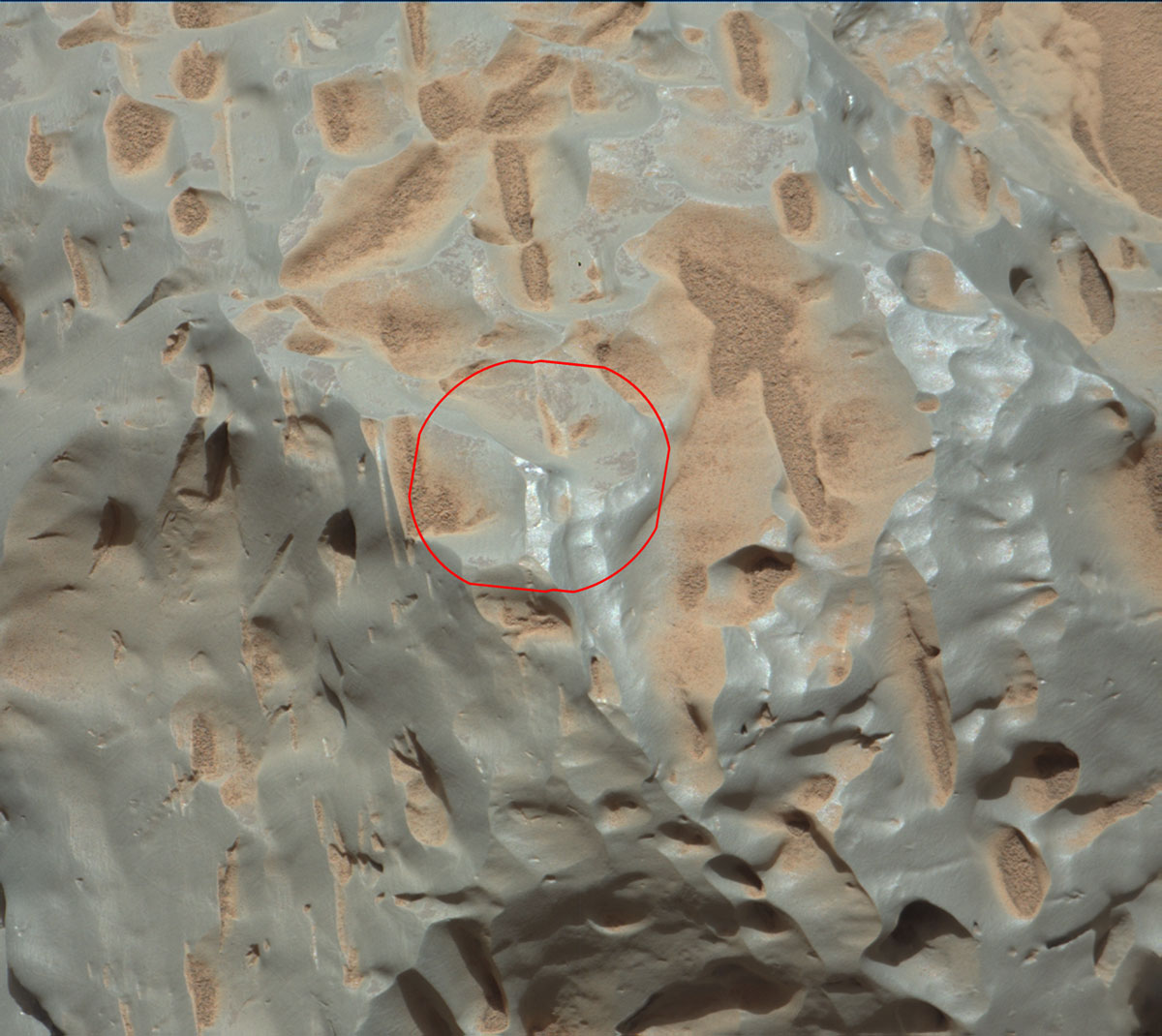
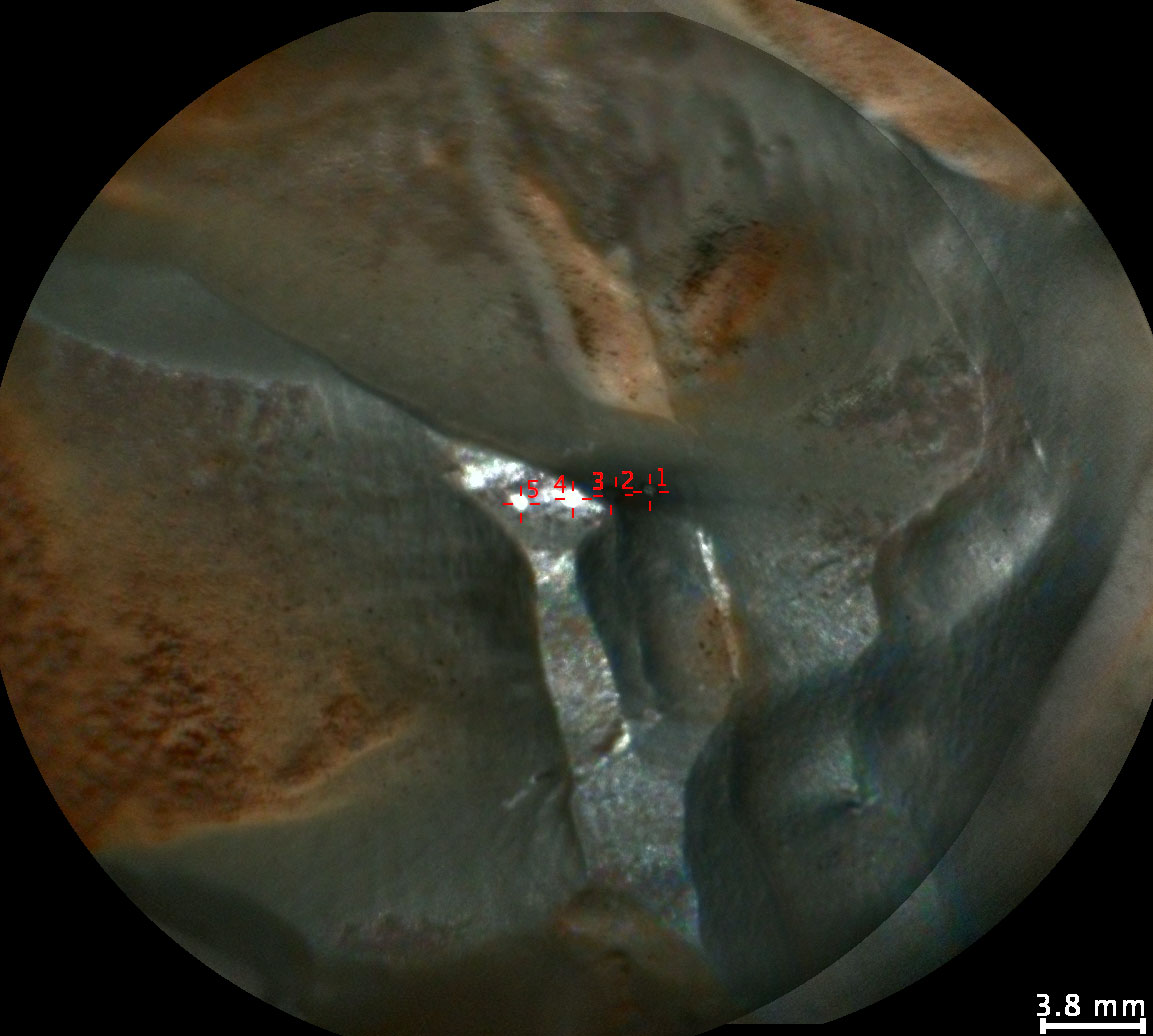
NASA's Curiosity Mars rover captured this image of an iron-nickel meteorite nicknamed "Cacao" on Jan, 28, 2023, the 3,725th Martian day, or sol, of the mission. This meteorite, discovered in the "sulfate-bearing unit," a region on Mars' Mount Sharp, is estimated to be about 1 foot (30 centimeters) across. It's one of several meteorites Curiosity has seen while exploring Mars.
Curiosity's Mast Camera, or Mastcam, took the panorama with its 100-millimeter focal length lens. The panorama is made up of 19 individual images that were stitched together after being sent to Earth. The color has been adjusted to match lighting conditions as the human eye would perceive them on Earth.
Figure A is Cacao as seen in Curiosity’s shadow on Jan 27, 2023, the 3,724th Martian day, or sol, of the mission. It is made up six individual images captured by Mastcam’s 34-millimeter focal length lens, then stitched together once the images were sent back to Earth.
Figure B is a close-up of Cacao as viewed through Curiosity’s ChemCam instrument. The red circle represents part of the meteorite targeted by the instrument’s laser; this laser can zap rocks and study the resulting vapor to learn more about their composition.
Figure C is a more zoomed-in close-up of Cacao as viewed through ChemCam; the red targets are where the instrument’s laser zapped this meteorite.
Curiosity was built by NASA's Jet Propulsion Laboratory, which is managed by Caltech in Pasadena, California. JPL leads the mission on behalf of NASA's Science Mission Directorate in Washington. Malin Space Science Systems in San Diego built and operates Mastcam. The U.S. Department of Energy's Los Alamos National Laboratory, in Los Alamos, New Mexico, developed ChemCam in partnership with scientists and engineers funded by the French national space agency (CNES), the University of Toulouse and the French national research agency (CNRS).
For more about Curiosity, visit http://mars.nasa.gov/msl or https://www.nasa.gov/mission_pages/msl/index.html.

